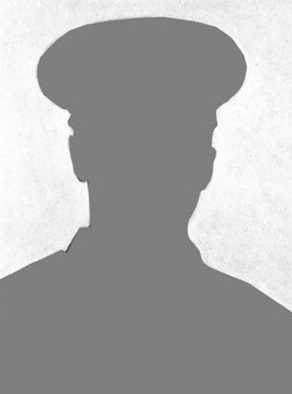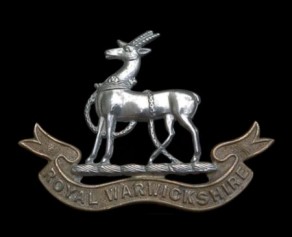Main CPGW Record
Surname: UPTON
Forename(s): Thomas
Place of Birth: Glusburn, Yorkshire
Service No: 15886
Rank: Corporal
Regiment / Corps / Service: Royal Warwickshire Regiment
Battalion / Unit: 10th (Service) Battalion
Division: 19th (Western) Division
Age: ---
Date of Death: 1920-04-18
Awards: ---
CWGC Grave / Memorial Reference: ---
CWGC Cemetery: ---
CWGC Memorial: ---
Non-CWGC Burial: SILSDEN (ST. JAMES) CHURCHYARD
Local War Memorial: SILSDEN, YORKSHIRE
Additional Information:
Thomas Upton was the son of Thomas and Elizabeth Young Upton, née Riley and brother of Sergeant Jim Upton (265005) (q.v.). Their father was born at Idle, Yorkshire and mother at Ulverston, Lancashire. Elizabeth (born c. 1864) was the daughter of Margaret Riley and William Young who married in1866.
1891 Skipton, Yorkshire Census: 8, Westgate - Thomas Upton, aged 4 years, born Skipton, son of Thomas and Elizabeth Upton.
1901 Dalton-in-Furness, Lancashire Census: 5, Cardigan Terrace - Thomas Upton, aged 14 years, born Glusburn, Yorkshire, son of Thomas and Elizabeth Upton.
The British Army Service Record for Thomas Upton (7766) exists but may be incomplete: Thomas, named as the son of Thomas and Elizabeth Upton of Browns Yard, Skipton, attested at Burnley on the 31 December 1902. He served with the 1st Bn East Lancashire Regiment and was ‘discharged having made a misstatement as to age’ on the 18 July 1903.
Thomas was married to Ada Metcalfe in 1905. Ada was the sister Private John Thomas Metcalfe (24062) (q.v.) and half-sister of Private Joseph Metcalfe (14896) (q.v.).
1911 Skipton, Yorkshire Census: 6, Lipton's Yard, Victoria Street - Thomas Upton, aged 24 years, born Glusburn, Yorkshire. [Thomas, was living with his parents, Thomas and Elizabeth Upton. His wife Ada and their two children were living with her mother at Skipton.]
The British Army Service Record for Thomas Upton (11880) exists but may be incomplete.
British Army WW1 Medal Rolls Index Cards: A/Cpl Thomas Upton, 11880 W. Rid. R. Theatre of War first served in: 2B - Balkans. Date of entry therein: 7.7.15. Deserted.
Thomas deserted from the 11th Bn Duke of Wellington's (West Riding Regiment) on the 4 December 1915; he had served with the 8th Bn at Gallipoli. He enlisted as Thomas Young in another regiment (see both ‘Craven Herald’ and ‘West Yorkshire Pioneer’ of 25 May 1917). In the Silsden Roll of Honour he is named as Sergeant Thomas Upton, Royal Warwickshire Regiment (see below).
The British Army Service Record for Thomas Young (15886) exists but may be incomplete (this is Thomas Upton).
British Army WW1 Medal Rolls Index Cards: Cpl Thomas Young, 15886, R. War. R.
British Army WW1 Medal and Award Rolls: Cpl Thomas Young, 15886, 16th Bn R. War R.; 10th Bn R. War R.
UK, WW1 Pension Ledgers and Index Cards, 1914-1923: card(s) exist for Thomas Young, alias Upton. Date and cause of death: 18.4.20. Pulmonary Tuberculosis. Name(s) on card(s): 1: Wilfred Upton. 2: Widow: Ada, born 21.4.1883. Address: 1. 7, St Johns Street, Silsden, West Riding, Yorkshire. Address 2. 17, Morley Road, Doncaster. 3: Mrs Ada Levick. Relationship to Man: Guardian of child.
Thomas was buried at Silsden, Yorkshire, on the 21 April 1920.
Data Source: Local War Memorial
---
Entry in West Yorkshire Pioneer Illustrated War Record: ---
---


Regiment / Corps / Service Badge: Royal Warwickshire Regiment

Divisional Sign / Service Insignia: 19th (Western) Division
---
---
Comment on this Soldier Record
You can leave comments on this soldier record. Please note all comments will be manually approved before they appear on the website.






No comments yet.